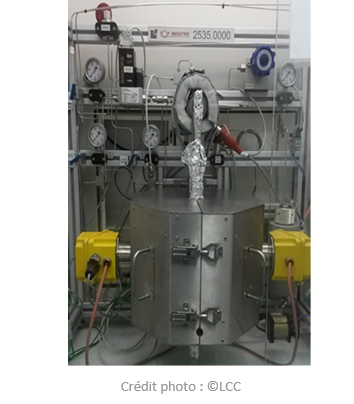Sustainable & digital engineering
Energy transition
Innovative catalytic systems for the conversion of CO2 into hydrocarbons

Content created on
The conversion of CO2 into liquid fuels or hydrocarbons, through the Reverse Gas to Water (RWGS) and Fischer-Tropsch (FT) reactions, is attracting increasing attention as an option for energy storage, CO2 capture and utilisation.
The proposed catalytic system allows both reactions (FT and RWGS) to be operationally implemented in a single reactor.
COMPETITIVE ADVANTAGES
- Higher activity than existing commercial catalysts
- Lower processing temperature than iron-based processes
- Optimised catalyst preparation method
APPLICATION
- Power to fuels
INTELLECTUAL PROPERTY
- Patent
DEVELOPMENT STAGE
Laboratory validation of the technology
LABORATORY

- LCC
Description
The technology involves a process for the preparation of catalysts and their use in the reduction of CO2 to hydrocarbons (through RWGS and FT reactions), in the heterogeneous phase.
The process comprises two main steps:
- A step for preparing an inorganic oxide support containing oxygen vacancies
- A step for positioning nickel in the oxygen vacancies of the support
The reduction of CO2 to hydrocarbons can be implemented in a conventional fixed-bed heterogeneous catalysis installation.

Technical specifications
- Operating parameters: H2/CO2 = 2; T = 220°C; P = 20 bar; GHSV = 1350 ml gcat-1 h-1
- CO2 conversion (%): 15%
- C5+ selectivity (%): 50%



